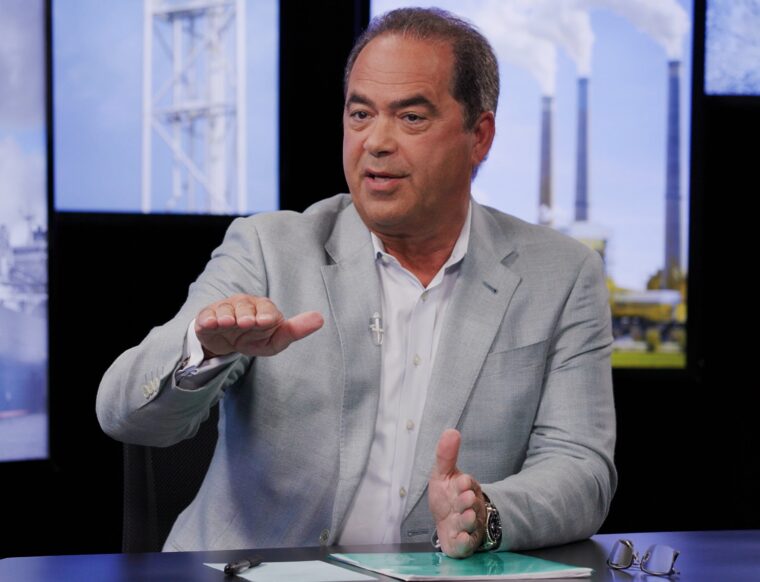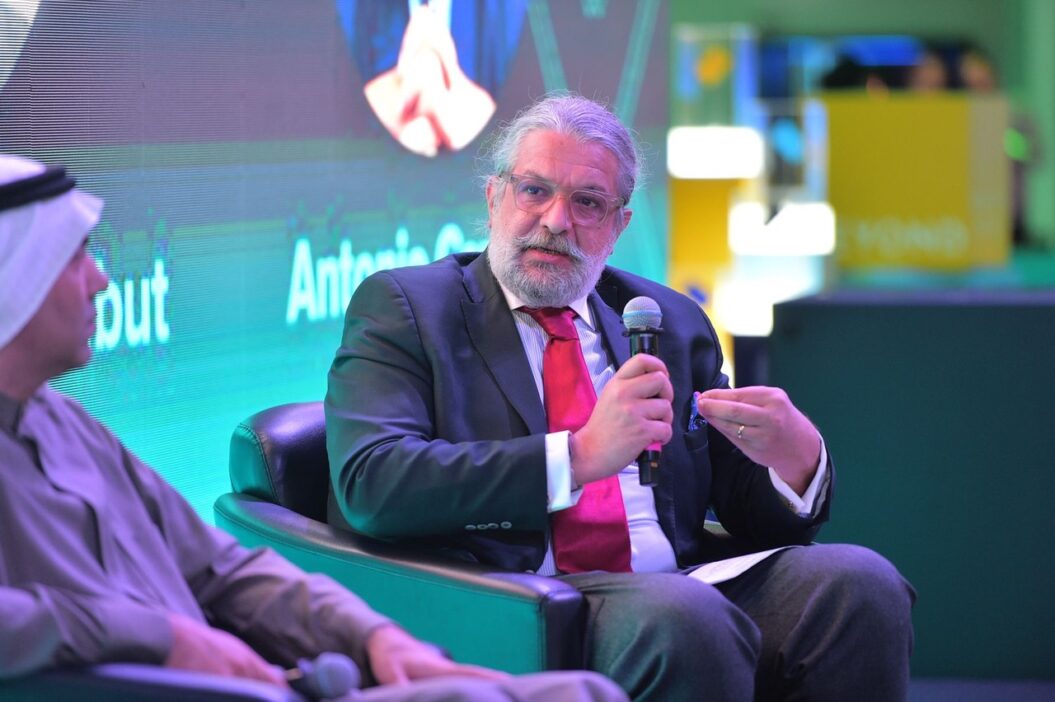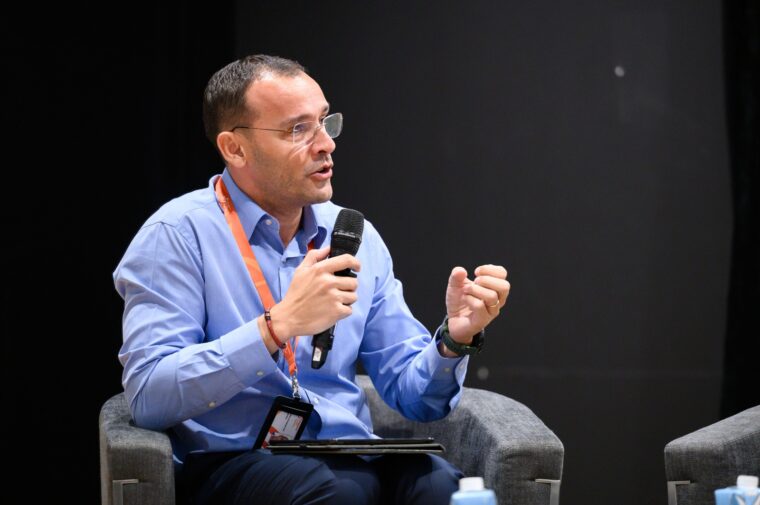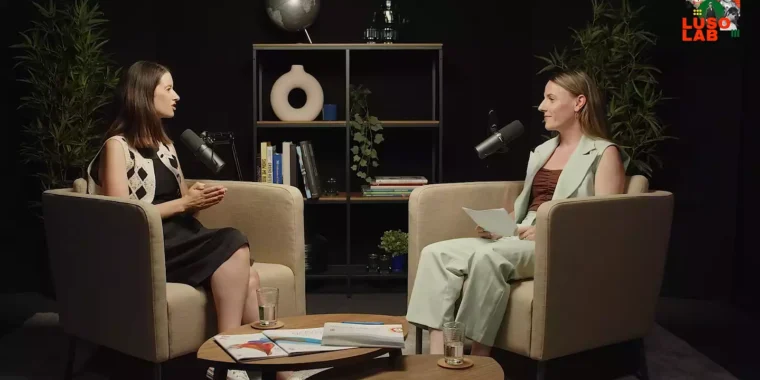As part of the partnership between the Portuguese Diaspora Council and Jornal de Negócios, António Azevedo Campos, CEO and Co-Founder at Hub2Energy, and Counselor of the Middle East Regional Hub, was interviewed by Jornal de Negócios. In the interview, António Azevedo Campos discussed his professional journey and identified competitive opportunities for Portugal, its economy, companies, and entrepreneurs in general.
1 – WHAT LED YOU TO LEAVE PORTUGAL?
I like to say: I didn’t leave — I simply expanded the geography. I became international.
From an early age, I sought out contexts that would challenge me. At university, I used my holidays for volunteer work in Africa or summer courses abroad. Later came the Middle East. My curiosity for intercultural dialogue and my desire to be part of an ecosystem on a different scale brought me to these places. I started in Iraq, moved through Saudi Arabia, and have been in Kuwait for over ten years. Each context demanded adaptation with discernment, focus, and sound judgment.
Being in the world is not about leaving your country — it’s about taking it where it hasn’t yet arrived. A Portugal projected, not merely exported.
2 – WHAT ADVANTAGES OR DISADVANTAGES HAS THE FACT THAT YOU ARE PORTUGUESE BROUGHT YOU?
Being Portuguese means carrying a discreet yet powerful advantage: the art of knowing how to be. In the Gulf, this translates into instinctive empathy, flexibility without submission, and an identity that adapts without dissolving. We have a rare talent for human nuance. Perhaps as a maritime inheritance, we listen before we speak and navigate before we conquer. That blend of empathy and pragmatism — so often underestimated — is precisely what builds trust.
The disadvantage? Initial invisibility. Portugal still doesn’t appear on the radar as a first-tier power. Unlike in football, we are not the “default players” in the global game. But perhaps that’s our ace: we enter with substance, not with status. And when you enter with substance and perseverance, everything else follows.
3- WHAT OBSTACLES DID YOU HAVE TO OVERCOME AND HOW DID YOU DO IT?
Curiously, the greatest obstacles weren’t in the desert. The real adjustment was internal: realizing that here, relationships matter more than processes, that silence says more than briefings, and that time — so often rushed in the West — is, in fact, the only path to trust.
Those who arrive in the Gulf with preconceived notions stumble at the door. But those who arrive with respect and a willingness to listen encounter a disarming hospitality. As Pessoa once said, “the Arab soul is the backdrop of the Portuguese soul.” We share a warm melancholy, an innate generosity, and a sense of belonging that is born in the details and recognized in the family. That’s why I can say it quite naturally: Kuwait, at times, feels dangerously like “a minha alegre casinha.” With more sun — and less fado.
4 – WHAT DO YOU MOST ADMIRE ABOUT THE COUNTRY YOU ARE CURRENTLY IN?
I admire the way Kuwait combines a vision for the future with a sense of collective responsibility. Through the Kuwait Investment Authority, its sovereign wealth fund, the country shows that managing wealth is not just about accumulating capital, but about ensuring it serves future generations. This commitment to continuity is rare and valuable. Here, investing is both an act of sovereignty and of strategic generosity.
Soon after independence, the Kuwait Fund was also established with a clear purpose: to support developing countries, sending an unmistakable message — progress must be shared. There is a maturity of thought that recognizes stability begins with ensuring long-term well-being. Investing today to safeguard tomorrow makes Kuwait an example to follow. This is not merely a country that generates wealth; it is a country that builds legacy — a place where generosity and solidarity reveal themselves with discretion and impact.
5 – WHAT DO YOU ADMIRE MOST ABOUT THE COMPANY / ORGANIZATION YOU ARE IN?
The people.
At Hub2Energy, the Portuguese Business Council, AGM, Abyar, and the other organizations I collaborate with, what impresses me most is the quiet mastery of getting things done.
People with resilience, determination, and the elegance of those who have nothing to prove.
In the Middle East, what holds things back is rarely a lack of resources. The blockage lies in the waiting — in the fear of deciding, in the illusion that everything can be postponed indefinitely. There is an epic tendency toward intention and a chronic hesitation in execution. That’s why these teams make a difference: because they move forward. Because they have discernment. Because they deliver.
So, without hesitation, what I admire most is the people.
6 – WHAT RECOMMENDATIONS DO YOU HAVE FOR PORTUGAL, ITS ENTREPRENEURS AND MANAGERS?
Miguel Torga once wrote that “the caravels of the impossible have already sailed.” Today, it’s not so much about dreaming the impossible, but about governing the possible — with vision, intelligence, and method. Portugal needs three strategic gestures: to look outward again, to activate its diaspora, and to structure its economic diplomacy.
Portugal cannot resign itself to the poetic condition of a “garden planted by the sea,” nor to the comfortable caricature of a country that merely peeks at Europe — and even that, often, through a narrow lens. We have talent, we have history, we have art. What we lack is everything else: scale, continuity, and strategic intent.
The Diaspora Council network already exists. It is positioned in centers of decision-making, speaks the language of markets, and understands the codes of influence. It can open doors, attract capital, and anticipate trends. The Regional Hubs, Competence Centers, and Youth Diaspora are not accessories; they are assets for the future. What’s missing is to treat them as such — not merely as symbols of presidential prestige, but as a true platform for public policy with real impact.
It’s time to align resources, break silos, and operate as a network. To think globally, deliver value, project presence, cultivate reputation, and generate relevance. What today depends on individual effort must become national architecture. Exporting more or internationalizing companies is no longer enough — we must internationalize Portugal.
7 – IN WHICH SECTORS OF THE COUNTRY WHERE YOU LIVE CAN PORTUGUESE COMPANIES FIND CUSTOMERS?
Kuwait is implementing its Vision 2035, with a strong focus on modernization and economic diversification. Portuguese companies — especially those that combine innovation with technical expertise — have real opportunities in sectors such as infrastructure, energy, technical training, healthcare, and urban development.
The oil, gas, and engineering industries continue to attract specialized solutions, as do the financial, technological, transport, and tourism sectors.
In Kuwait, those who build relationships with seriousness find more than clients — they find partners.
8 – IN WHICH SECTORS IN PORTUGAL COULD COMPANIES IN THE COUNTRY WHERE YOU ARE WANT TO INVEST?
Portugal is today seen as a fashionable destination — combining technical talent, quality of life, and privileged access to European, African, and American markets. The country has strong arguments to attract investment across nearly all sectors with scale, added value, and geopolitical relevance. However, it must also prove that it knows how to invest in those who invest in it.
Energy is strategic, but there are real opportunities in areas such as technology, fintech, Industry 4.0, healthcare, agrifood, tourism, logistics, and critical minerals like lithium. The essential thing is to ensure trust and consistency.
9 – WHAT IS THE COMPETITIVE ADVANTAGE OF THE COUNTRY YOU ARE IN THAT COULD BE REPLICATED IN PORTUGAL?
Kuwait has made Public-Private Partnerships a true national strategy. Through the Kuwait Authority for Partnership Projects, it has established a clear and effective model: transparent contracts, well-distributed risks, guaranteed minimum returns for investors, and well-defined incentives.
Private-sector involvement — from project design to operation — ensures execution focus and management accountability. What’s most distinctive is the mandatory IPO: projects are converted into joint-stock companies with publicly traded shares, allowing citizen participation and democratizing the value created.
Portugal should take inspiration from this ability to mobilize capital and know-how toward shared goals. Adapting a more functional, results-oriented PPP model could be decisive in accelerating strategic projects. It’s not about importing formulas, but about creating an environment of trust — one where the private sector invests with purpose and the public sector acts with vision.
10 – ARE YOU THINKING OF RETURNING TO PORTUGAL? WHY?
As long as the challenges remain genuine and the human, emotional, and strategic investments continue to make sense, I see no reason to break this virtuous cycle. I am a Portuguese of the diaspora — a word so often mistaken for emigration. It is neither exile nor distance; it is an active, qualified, and strategic presence. Portugal is always here, and truth be told, it has “never met its rival.”
I have two children, young adults now beginning their professional lives. That only strengthens my responsibility to show them that if Portugal is merely a place, it will always be small. But if it is a mission, it becomes global.
Return? Perhaps one day. But until then, I’ll stay here — in this place where, however unlikely it may seem, Portugal also knows how to happen.







